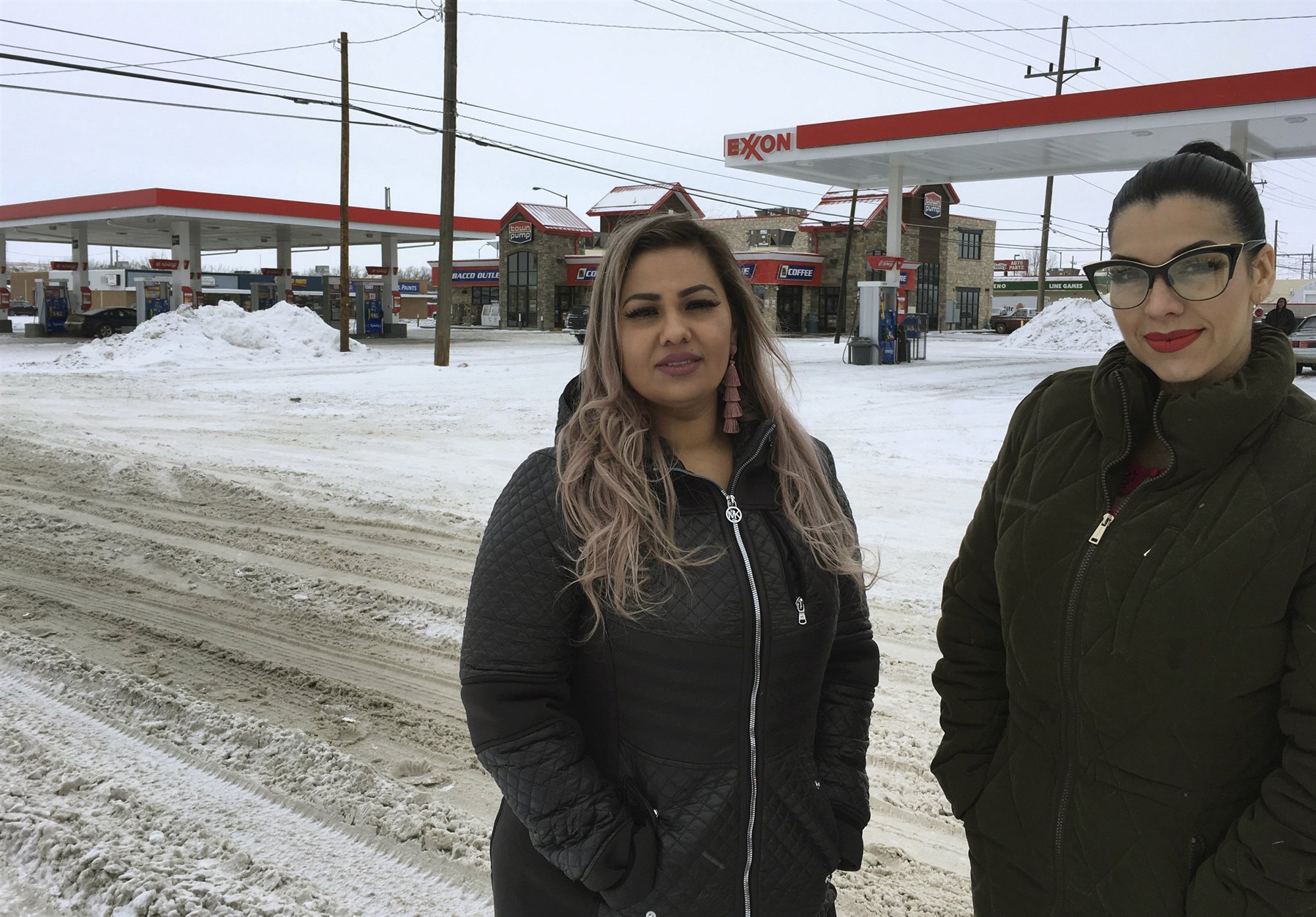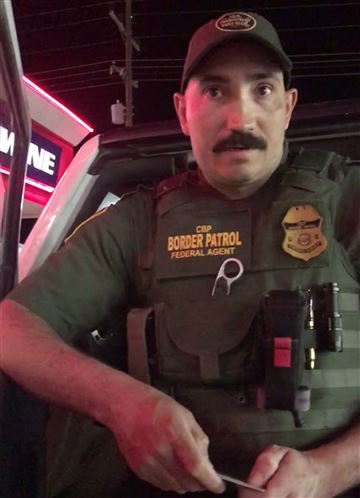CBP’s behavior was unconscionable and illegal, but sadly not uncommon,” said Cody Wofsy, a staff attorney with the ACLU’s Immigrants’ Rights Project.

Two U.S. women who were detained by Customs and Border Protection after they spoke Spanish at a convenience store in Montana more than two years ago have reached a settlement in their lawsuit against the Trump administration, the American Civil Liberties Union said Tuesday.
The women, Ana Suda and Martha “Mimi” Hernandez, both U.S. citizens, were chatting in Spanish as they went to buy eggs and milk on the night of May 16, 2018, in Havre, a small town about 35 miles from the Canadian border. That’s when a Border Patrol agent overheard them, Suda has said previously.
The agent, Paul O’Neal, “singled out, detained, and interrogated” the women “because he heard them speaking Spanish,” the lawsuit alleges.
The women recorded their exchange with O’Neal on video. In the video, Suda asks him why he is asking them for their identifications.
“Ma’am, the reason I asked you for your ID is because I came in here, and I saw that you guys are speaking Spanish, which is very unheard of up here,” O’Neal responds. Suda then asks him whether she and Hernandez are being racially profiled; O’Neal responds no.
“It has nothing to do with that,” he says. “It’s the fact that it has to do with you guys speaking Spanish in the store, in a state where it’s predominantly English-speaking.”
In a statement after the settlement was announced, Suda said: “We stood up to the government because speaking Spanish is not a reason to be racially profiled and harassed. I am proud to be bilingual, and I hope that as a result of this case CBP takes a hard look at its policies and practices. … No one else should ever have to go through this again.”
The lawsuit, which the ACLU filed last year on behalf of Suda and Hernandez, cites violations of the Fourth Amendment, which prohibits “unreasonable searches and seizures.” The ACLU argued that O’Neal had “no reasonable suspicion or probable cause justifying seizure and detention” other than “relying on their use of Spanish as a justification and proxy for race.”
During the litigation process, O’Neal also handed over “a number of inflammatory and racist text messages confirming his anti-immigrant bias,” according to the ACLU.

Two CBP representatives said in an email that the agency “won’t have anything more outside the details of the settlement,” which says it “is in no way intended to be, and should not be construed as, an admission of liability or fault on the part of the United States, its agents, servants, or employees, and it is specifically denied that they are liable to the plaintiffs.”
Caitlin Borgmann, executive director of the ACLU of Montana, said in a statement: “As if the racism they experienced at the hands of CBP agents were not enough, our clients also bore the brunt of local backlash as a result of coming forward. They both ultimately left Havre for fear of their families’ safety.”
The settlement involves a monetary sum, according to the ACLU, which declined to provide additional details.
“CBP’s behavior was unconscionable and illegal, but sadly not uncommon,” said Cody Wofsy, a staff attorney with the ACLU’s Immigrants’ Rights Project.
A CBP spokesperson said “the overwhelming majority of CBP employees and officers perform their duties with honor and distinction, working tirelessly every day to keep our country safe.”
“CBP officers and agents are trained to enforce U.S. laws uniformly and fairly and they do not discriminate based on religion, race, ethnicity or sexual orientation,” the spokesperson said
Longstanding Pattern
The legal proceedings revealed that CBP agents in Havre “have engaged in a longstanding pattern of abusive seizures and investigations” that have “repeatedly targeted Latinx individuals without justification, often based on their race,” said the ACLU, citing “a published Ninth Circuit opinion holding that CBP agents illegally detained a group of men in Havre in 2006.”
The ACLU obtained a video statement that a CBP supervisor gave during a CBP internal investigation. It shows the supervisor saying he “didn’t see anything harassing” about the incident involving O’Neal, referring to a time when he saw “two Mexicans” at a mall while off duty one night.
He said his first reaction was to alert CBP so it could send an agent. He then found out that another off-duty CBP agent had already made the same report.
“If there’s somebody speaking Spanish down there, it’s like all of the sudden you’ve got five agents swarming in like, ‘What’s going on?'” the supervisor said.
O’Neal was also interviewed by CBP internal investigators, according to video obtained by the ACLU.
According to the ACLU, additional evidence that surfaced during the lawsuit also revealed that O’Neal was a member of the now defunct “I’m 10-15” Facebook group, where CBP agents joked about migrant deaths, discussed throwing burritos at Latino members of Congress visiting a detention center in Texas and posted vulgar depictions of Rep. Alexandria Ocasio-Cortez, D-N.Y.
The ACLU said that within the first six months of President-elect Joe Biden’s administration, it wants to see action ensuring that “all CBP officials uniformly comply with full Fourth Amendment standards” and a revision of certain guidelines to prohibit discriminatory profiling “without exception.”








